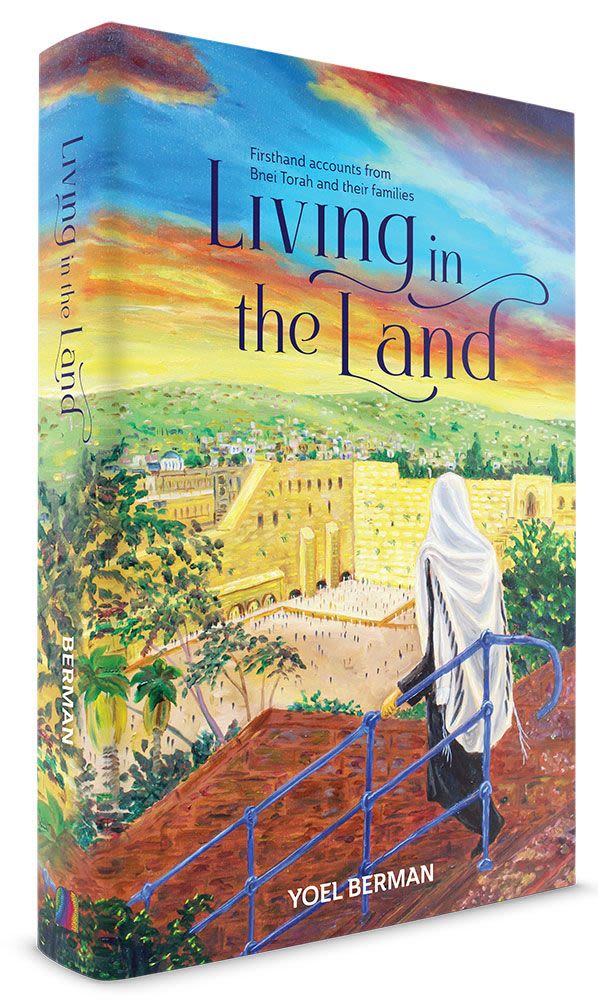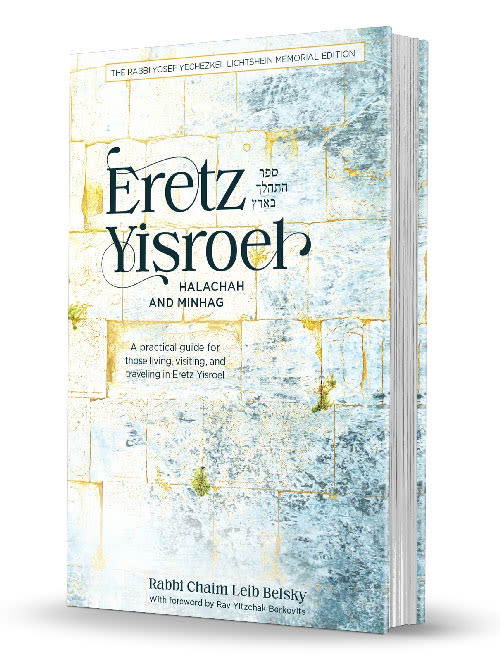
Two-sided Magnet
We began to feel drawn to everything Jewish, seeing a Jewish book in the library or the Star of David stirred our emotions and made us feel a longing for something unfamiliar...

Strangers No More, Part 13
“We are strangers in our own land.” This said it all. We could not deny our dissatisfaction with our spiritual situation. We were slowly settling into a secure position with work and commitments. But deep inside, something else was happening. We began to feel drawn to everything Jewish. Just seeing a Jewish book in the library, or the Star of David, stirred our emotions and made us feel a longing for something unfamiliar. We did not know any Jews in Finland. The only Jews we had met were visitors from Israel, who were introduced to us by our friends. Like a magnet to metal, we were being pulled in the direction of Judaism and of Eretz Yisrael. My wife and I traveled to the Israeli Embassy in Helsinki to inquire about emigration to Israel. The Embassy received us very politely, and while we were still talking to the embassy personnel, the news reached the ambassador that there were crazy Finns in the embassy who wanted to move to Israel. Obviously feeling amused and curious, he invited us to his office for a friendly talk to find out for himself what was going on.
During our casual talk, I referred to the Tanach, where it states that even strangers one day will come and ask the Jews for permission to walk with them to the Holy Mountain and settle the Land (Isa. 56:6–7, Amos 9: 11–15). The ambassador appreciated the biblical references, but was more interested in practicalities. “How will you be able to cope with the huge differences in the culture? And what about the people, they are not as nice as Scandinavians, and the food, imagine if you don’t like the Israeli falafel or humus and the hot climate?” Not one of his points scared us. So what? We will love the people, we love spicy food, and we would rather be without the cold climate. As his position demands, he was very professional and diplomatic, and he left us with the feeling that if it were up to him alone, he would gladly let us immigrate immediately. We couldn’t be disappointed in him. But there were obstacles in the way; one of them was that we had not yet converted. We had known in advance that this may be a problem, but we also realized that this was a door that we might need to knock on many times before it would open, so we figured we had better start knocking.
We felt a strange pull to Eretz Yisrael, as a magnet pulls metal. The pulling power is invisible but real. Yet it works the opposite way too. If you turn the magnet around, there is a push, a rejection. We also felt this push. Every week, there was the conflict between Shabbat and Sunday. We had to live through the holidays but could no longer share them. More and more, our food took on a foreign taste in our mouths.
We were like an implant in a foreign body and were about to be rejected because there were too many factors preventing us from fitting in. We became very sensitive to imitators and pretenders in the world of religion. We did not leave a false church to join yet another false denomination. Therefore we were digging deep. The fact that the Bible talks about how strangers and foreigners in the future will join the Jewish people and walk on the soil of Eretz Yisrael was for us an assertion that we could seriously approach the Jewish religion and even make a claim to come and live in the land promised to the Jews.
We had already moved around the world twice. This was actually an advantage for us. We already knew what was involved. We were not deeply rooted in Finland. Besides, we all liked traveling, especially the girls. But moving the whole family to another country involves more than just an airplane flight. So I had to ask myself, how many times can you replant a tree? Is one more time too much, or will it survive another uprooting? Will the girls be able to cope? For my wife and myself, there was this strange connection, the pull in the direction towards Israel. I was not as worried about us as I was about our daughters. Runa and I totally agreed on the importance of making aliyah. We could argue about the trivialities, but when it came to the large issues, such as our faith and Israel, we never disagreed. If I was strongly opinionated, so was she. Runa was not only supporting me during this process, she was actively seeking her own progress, constantly praying and learning. Yet, doesn’t a young plant take root more easily than an older one? So maybe I shouldn’t worry about our daughters, as much as about myself?
Kronoby is a long distance from any Jewish community. To my knowledge there is not a single Jew in Kronoby. The drive to Helsinki, with its Jewish population of less than 2,000, takes about five hours. At that time, Helsinki did not have a rabbi, although it had a very active community. So the congregation in Helsinki referred me to the rabbi in Stockholm. If Helsinki was far away, Stockholm was even further. I contacted the rabbi in writing. He answered me in a friendly manner, but our request for conversion was rejected. He explained how difficult it would be and how heavy the burden of the commitments would be compared to what I was used to. I was disappointed but I did not give up.
On one of my political engagements, I traveled to Stockholm and took the opportunity to visit the synagogue and meet the rabbi. I arrived by boat. Finns are spoiled with large ships traveling between the two Nordic countries. These floating luxury hotels journey through the world’s second largest archipelago, next only in size to the Greek archipelago. I walked all the way from the port to the synagogue. When I arrived, it was time for the evening prayer. For some time, I knocked at the door and nobody answered, until I realized that the synagogue used another entrance. I was knocking at the wrong door. How hard it was to find the right door for conversion! I did not know then that prospective converts are usually rejected at first. After this meeting in person, the rabbi appreciated my situation and we engaged in dialogue. Later, when a rabbi was appointed in Helsinki, I was referred to him and continued my contacts closer to home.
To be continued.
(Strangers No More, by Shlomo Brunell. Reprinted with courtesy of Gefen Publishing House 2005 www.gefenpublishing.com)










Tell us what you think!
Thank you for your comment!
It will be published after approval by the Editor.